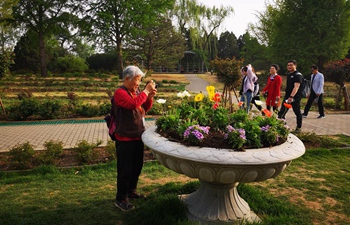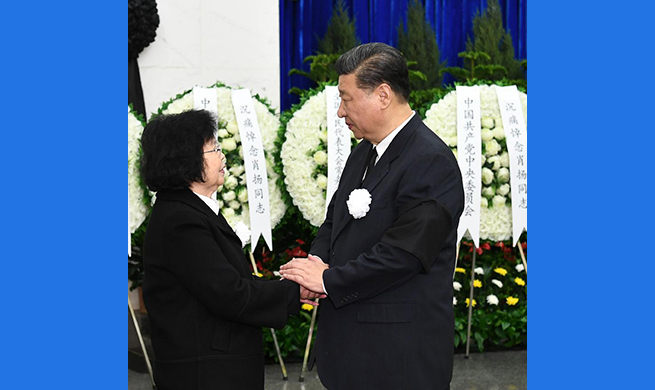CHICAGO, April 22 (Xinhua) -- Treating breast tumors with two cancer drugs simultaneously may prevent endocrine resistance by attacking the disease along two separate gene pathways, according to a study posted on the website of the University of Illinois (UI) on Monday.
Endocrine resistance is a condition when some patients will either not respond or will develop resistance to the drugs over time during endocrine therapy.
Based upon prior research, UI researchers hypothesized that two elements might work together to cause endocrine resistance: the hormone receptor ERa, which is responsive to estrogen and is expressed in 70 percent of all breast cancers; and the nuclear transport gene XPO1, which removes foreign materials from cells' nuclei.
Combining the drugs selinexor, which prevents XPO1 anti-cancer proteins from functioning, and 4-OHT, which inhibits estrogen receptors from responding to the hormone, might be more effective than either drug alone, the researchers hypothesized.
In the current study, the researchers treated endocrine-resistant tumor cells with 4-OHT or selinexor alone, or with a combination of both drugs to determine how each of these treatment protocols affected the tumors' survival and functioning.
When they tested the three treatments on human breast tumor cells implanted in mice, they found that the combination of 4-OHT and selinexor caused the tumors to regress faster and more completely than either drug alone, and the effects continued for several weeks after treatment ended.
In analyzing genetic activity in human endocrine-resistant breast tumors, they found that the drug combination increased the expression of more than 100 genes and decreased the expression of 132 other genes that were not affected by either drug alone.
The drug combination appeared to promote sustained tumor regression by decreasing the activity of genes that were associated with endocrine resistance and metastasis. Among these were sets of genes regulated by the protein Akt that control cells' survival, proliferation and migration.
The study involved human breast cancer cells that were implanted in mice and analyses of the genes expressed by endocrine-resistant breast tumors.
The study has been published in the journal Cancers.












